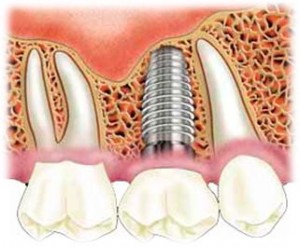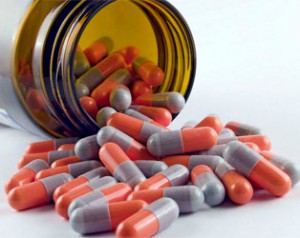Antibiotics for dental implants

Dental implantation is a complex multi-stage process that requires a responsible attitude not only from the doctor, but also from the patient.
To minimize the risk of complications and rejection of the implant in the postoperative period, it is necessary to strictly comply with all the recommendations of the doctor.
As a rule, implantation of implants is accompanied by incisions and suturing.
It is very important to comply with the appointment of a dentist at an early postoperative stage, because during this period the mucous membrane is very vulnerable to infection.
Therefore, postoperative therapy is aimed at the following points:
- Do not allow infection to develop on the surgical site.
- To accelerate the regeneration of the mucous membrane at the incision site.
After implantation, some pathological changes occur in the bone tissue and soft tissues. Injury to the bone and surrounding soft tissue causes an inflammatory reaction.
In order to avoid complications in the postoperative period, it is necessary that the stages of inflammation, proliferation, and regeneration are adequately completed.
The nature of healing depends primarily on the condition of the patient’s body and the local reaction to the injury, and implantable implants.
Do I need antibiotics

The need for atibiotics after dental implants have been installed is controversial.
For the prevention of complications after implantation, various antibacterial therapy options are offered, despite the fact that there are currently no reasonable and reliable data on this issue.
Studies have shown that after surgery on a periodontium, complications of an infectious nature are quite rare.
Such data suggested that the traditional prescription of antibiotics in surgical interventions is optional.
Many dentists recommend starting antibiotics for dental implants on the same day or one day before surgery. Antibiotics must be prescribed if the surgery was complex and lengthy.
In simple cases, with sufficient bone tissue and minimal incisions, antibiotics after dental implantation, in the opinion of some specialists, are not necessary.
Antibiotics are selected individually for each individual case. The purpose of a particular antibacterial drug depends on the performance of those tests that were performed before implantation.
How to use
Many antibacterial agents have a number of contraindications, so before drinking antibiotics, you should read the instructions.
You should not buy drugs, the instructions for which are not written in Russian.Our legislation prohibits the sale of such drugs, which means there is a risk of acquiring a low-quality product.
- Take antibiotics, if the instructions do not recommend otherwise, it is necessary with meals. Thus, a gradual absorption of the drug occurs.
- Do not exceed the dosage prescribed by your doctor.
- It is not recommended to take the drug for longer than indicated in the instructions.
Side effect
- Antibacterial drugs can have side effects:
- They cause an allergic reaction.
- May provoke dysbiosis.
- Against the background of taking antibiotics, fungal diseases can develop.
- The manifestation of systemic disorders.
- Increased antibiotic resistance of some organisms.
What antibiotics are prescribed

Broad-spectrum antibiotics of the penicillin group are prescribed. The duration of treatment is from 5 to 8 days. With complex and lengthy surgery to install implants, antibiotic therapy can be extended up to 14 days.
The most popular antibiotic is penicillin and its analogues: amoxiclav, amoxicillin. Amoxicillin is most commonly used due to its low toxicity and cost. It is well tolerated, and side effects are mild and pass quickly enough.
Amoxiclav contains amoxicillin and clavunalic acid. The price of this drug is significantly higher than the cost of amoxicillin.
Currently, cephalosporins are widely used for the prevention of purulent infection. These are broad-spectrum antibiotics that are highly active against resistant bacterial strains to the penicillin group. The advantages of third generation cephalosporins are their effectiveness in mixed aerobic - anaerobic infections.
Antibiotic requirements
The main requirements for antibiotics used to prevent complications after surgery:
- A wide range of actions.
- Adequate degree of activity.
- The speed of onset of antibacterial effectiveness.
- Good tolerance to the drug.
- High efficiency.